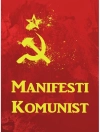This comprehensive book approaches sustainability from two directions, the reduction of pollution and the maintaining of existing resources, both of which are addressed in a thorough examination of the main chemical processes and their impact. Divided into five sections, each introduced by a leading expert in the field, the book takes the reader through the various types of chemical processes, demonstrating how we must find ways to lower the environmental cost (of both pollution and contributions to climate change) of producing chemicals. Each section consists of several chapters, presenting the latest facts and opinion on the methodologies being adopted by the chemical industry to provide a more sustainable future. A follow-up to Materials for a Sustainable Future (Royal Society of Chemistry 2012), this book will appeal to the same broad readership – industrialists and investors; policy makers in local and central governments; students, teachers, scientists and engineers working in the field; and finally editors, journalists and the general public who need information on the increasingly popular concepts of sustainable living.
Innehållsförteckning
Introduction;
General Concepts in Sustainable Chemical Technologies;
Separations and Purifications;
Overview by Darrell Patterson;
Membrane Separation;
Gas Separations using Ionic Liquids;
Absorption and Adsorption Processes;
Liquid-Liquid Extractions and Stripping (including supercritical fluids);
Ionic Liquids and their application to a more sustainable chemistry;
Crystallisation in Continuous Flow Processes;
Chemical Transformation and Reactors;
Overview by Janet Scott;
Homogeneous and Heterogeneous Catalysis and Catalytic Reactors;
The application of supercritical carbon dioxide extractions of functional compounds for more sustainable future;
Processes employing cavitation e.g. ultrasound, hydrodynamic cavitation;
Microwave Chemistry and Microwave Reactors;
Continuous Flow Processes;
Bioelectrochemical Systems for a Sustainable Future;
Nanoparticles and their application in sustainable chemistry;
Sustainable Processes in the Metal and Mining Industry;
Photochemical production of Fine Chemicals;
Biochemical Transformations and Reactors;
Overview, by Professor David Leak;
Enzyme Biotransformations and Reactors;
Algae and Bacterial Technologies for Biofuels;
Fermentations and
Sustainable Technologies;
Process Integration;
Overview by Rafiqul Gani;
Process Control for Sustainable Processes;
Quantifying the Impact of New Materials and Processes Towards Environmentally Sustainable Technology;
Systematic Computer Aided Framework for Process Synthesis, Design and Intensification
Om författaren
Ph D in Chemical and Biochemical Engineering, Imperial College London 2001; 2001-2003, Technology Development Consultant and Project Manager, WS Atkins Consultants, Water Division, UK;, Postdoctoral Research Associate, Imperial College, London, UK 2003-2005; Lecturer (Aug. 2005-Feb. 2008) then Senior Lecturer (Mar. 2008-Sept. 2011), Department of Chemical and Materials Engineering, The University of Auckland, New Zealand; Senior Lecturer (Associate Professor), Department of Chemical Engineering, University of Bath, United Kingdom, Sept. 2011-present. Director of Research, Department of Chemical Engineering, University of Bath (2012-present). Darrell’s research is in the area of Sustainable Chemical Technologies focusing on Separation and Reaction Engineering. The focus is on the synthesis, fundamental characterisation and application of nanostructured and tuneable materials in environmental and sustainable applications in three main areas: Membrane Science and Engineering, Wastewater Treatment Technologies, and Catalytic Reaction and Reactor Engineering. He has over 100 research outputs, including 37 papers in peer reviewed journals.












